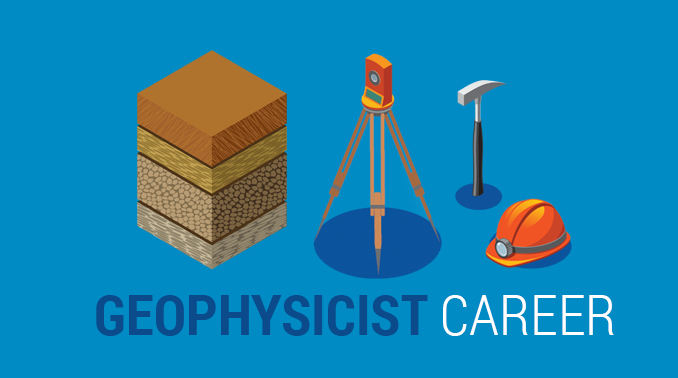All Categories
Featured
Table of Contents
Geophysicist Bob Embley: Ocean Exploration Careers in Mount Lawley WA 2021
This work is increasingly contracted out, so consultancies supply another source of work. Consultancy firms differ in size, from really small companies to large multinationals. Some consultancies are rather specialised in utilizing particular geophysical techniques or operating in particular places, while others offer a more varied series of services to their clients.
The extraction of gas from land fill sites is another area of work and this may grow in the future. Exploration business may carry out work for building and construction firms, water business, mining companies and ecological firms, so geophysicists might be utilized in any of these settings. Other employers consist of: geological surveysgovernment bodies and agenciesuniversities and research institutes.


Jobs may be noted in the oil and gas sector press. Recruitment is impacted by oil price fluctuations and the level of competition for positions varies depending upon this. Professions Days, which cover the complete variety of geoscience professions and are normally participated in by a number of essential industry employers, are run by The Geological Society.
Careers In Geology And Geophysics in St James Oz 2021
Some of the big oil and gas business provide a full two-year structured training programme throughout the breadth of geophysics, including the opportunity to experience work in different teams before specialising in one area. Your training may include deal with: existing wellsmagnetic and gravitational possible field information analysisresearchrock analysis. Nevertheless, it's more typical for your preliminary training to be offered on the task.

There may be a probationary period throughout which you work alongside a knowledgeable coworker. Competency-based appraisals happen frequently in most companies. In smaller companies, and for academic posts, there is not likely to be any official training - you'll be expected to start work straightaway and get abilities as you go along.
If you work for a smaller company, you may find that you need to take responsibility for organizing and moneying your own advancement and training. If you have a geology degree, membership of The Geological Society can be useful for networking and for keeping up to date with the market.
What Does A Geophysicist Do: Duties And Responsibilities in Kewdale Western Australia 2020
You might likewise find it helpful to join the PESGB (The Petroleum Exploration Society of Great Britain, which has a geophysics unique interest group. After a probationary duration, and as soon as you have actually acquired some experience, you could progress to senior geophysicist, then group leader and after that into a senior function in management.
The ease of movement between roles depends on the business structure. Study at Masters or Ph, D level in a subject related to geophysics or geosciences might assist with your profession advancement and progression. The work market within the oil and gas industry is very depending on rate and this might impact your opportunities for career development.
For knowledgeable geophysicists, freelance consultancy uses an excellent route for profession advancement. As a geophysicist, you're most likely to have a number of tasks throughout your working life.
Become An Earthquake Scientist in Wattle Grove Western Australia 2020
From geophysics, it's possible to focus on seismology (finishing further training to end up being a seismic interpreter) or to move into related areas such as engineering geology or hazard prediction.
Deciding what to study in college is a tough choice. Even if you understand that your field of interest lies in science, what program of study is best for you? If you make the choice to major in physical and life sciences and pursue a profession as a geophysicist, you're getting ready for an amazing and successful occupation.
However the first action to attaining your goal of becoming a geophysicist is making a degree. Even for entry-level positions in the field of geoscience, you'll require a bachelor's degree (a geophysicist college degree) from a certified college or university. Some research study positions need prospects to hold master's degrees or perhaps Ph.
About Environmental Geophysics in Neerabup Aus 2021
Postgraduate degree are particularly essential if you prepare to teach at a four-year institution. Geophysicists use physics concepts and strategies to study the gravitational, magnetic, and electrical fields of the earth. This enhances scientists' understanding of both the world's interior core and its surface. Geophysicists must have the ability to: analyze rocks, photos, and other pieces of information conduct research both in the field and in laboratories produce maps and charts of their findings write reports To accomplish all this, trainees need a specialized education for geophysicist professions.
As mentioned above, you'll require a bachelor's degree in geoscience or an associated discipline, such as a physical science or a natural science, to land an entry-level task. Trainees can also prepare by majoring in topics like: Biology Chemistry Computer system science Engineering Mathematics Physics The above geophysicist majors provide a more generalized technique to a single scientific discipline, but the majority of programs require trainees to take one or more geology course.
Table of Contents
Latest Posts
Geophysical Survey In Archaeology in Samson WA 2023
Geology Careers: Degree Requirements, Cost & Salary in Subiaco Western Australia 2022
Geophysical Surveys: Definition & Methods in Armadale Western Australia 2022
More
Latest Posts
Geophysical Survey In Archaeology in Samson WA 2023
Geology Careers: Degree Requirements, Cost & Salary in Subiaco Western Australia 2022
Geophysical Surveys: Definition & Methods in Armadale Western Australia 2022